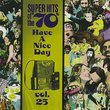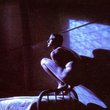| All Artists: Mahler, Schoenberg, Gielen Title: Symphony 8 / Jacob's Ladder Members Wishing: 0 Total Copies: 0 Label: Hanssler Classics Original Release Date: 1/1/2000 Re-Release Date: 11/26/2002 Genre: Classical Styles: Opera & Classical Vocal, Symphonies Number of Discs: 2 SwapaCD Credits: 2 UPCs: 040888301523, 4010276011248 |
Search - Mahler, Schoenberg, Gielen :: Symphony 8 / Jacob's Ladder
CD DetailsSimilar CDs
|
CD ReviewsGielen's Mahler 8: Modernist, thoughtful, nicely sung Dan Fee | Berkeley, CA USA | 06/25/2004 (5 out of 5 stars) "I have followed Gielen's Mahler cycle to date. Also, I am something of a Mahler 8 junkie. I own almost every version that I have any attraction for. So far, my absolute all-time favs in this symphony include: Wyn Morris' mystical version(currently not in distribution); Maazel's super-human Vienna Phil edition (with the incredible Richard Leech handling the extremely high tessitura Doctor Marianus solos with something like endless breath control); and Solti's standard-of-performance version. I also have, and I do play: Sinopoli's free-wheeling operatic eighth, and Abbado's dream team eighth. While I did not warm to Chailly's regular CD eighth, I found the DVD-audio version so stunning and so vivid that I could finally overlook his (to me) generalized dumbing down of Mahler's precise athletic style in favor of something like just more opera.So, where does Gielen fit into this spectrum? His approach to Mahler is alert and quite observant. Typically his forces play well, though nobody is claiming that the Baden-baden orchestra is Vienna, Berlin, or you know. In this recording, the chorus and soloists bring vigor and accuracy to the first movement. If the opening mass chord sounds leaner than you are used to hearing it, it nevertheless rings the harmony true, and has sufficient weight to make its point.There is a modern clarity to Gielen's Mahler that joins the gathering crowd of contemporary conductors who are catching the genius of Mahler's polyphony, not just his Romantic gesture and drama. Almost all of Mahler's symphonies inherit the legacies of the Romantic Era, though it would be superficial to argue that Schumann and Mendelssohn and Weber are all they inherit. Beethoven opened doors into dramatic and structural regions which Mahler was only too happy to explore further. And Mahler's counterpoint goes all the way bach to J.S. Bach, and even before, in the great Medieval polyphonists.The modernity of Gielen's approach to Mahler is only underlined by his partnering the symphonies with various classics, post-Mahler. In this set we are given Schoenberg's rendering of the Old Testament story of Jacob's dream. It is not easy listening, but bears repeated efforts; and so far as I can tell, not being entirely familiar with the work, Gielen and players/singers bring it off masterfully.In the panoramic vistas of the second half of Mahler's eighth, we get a greater sense of the orchestra, as well as of the individual singers. Again, the textures conjured by Gielen and players are leaner, and more muscular than in many other Mahler recordings. The chorus captures its antiphonal echo effects, spot on. When the bare echoes yield to harmony, still antiphonal from opposite sides of the soundstage, you feel as if you are getting a very human sense of heartfelt presence, even in this most heavenly of Goethe's scenarios. Pater ecstaticus and Pater profundus are solid voices, fit to their music and their dramatic roles. When the heavenly boys enter, they sound ... well, heavenly. Jene rosen flits along, telling its humorous but holy story, with the sounds of fluttering wings in the air via woodwinds and strings shaking. When Doctor Marianus enters, awakening to the bliss and freedome of heavenly realms, his tone seems a a bit more baritonal, but he ever more rises to the heights, with ringing tenor. In any event, this part is famously difficult and ungrateful. It requires you to sing melodiously soft, at the upper reaches of human range. Then it asks you to reach higher. When Mater Gloriosa floats into view, the men's chorus sounds like it is floating too, and the orchestra positively puts a glowing halo of mystical light around the moment. In the women's trio, Mater peccatrix is the redoubtable Allesandra Marc, and Dagmar Peckova as Mater Samaritana can actually hit her low notes. Tempo lifts quite a bit when the trio takes off. So does the music offer a sense of continuing to lift, higher and higher into some ethereal atmosphere, just a Goethe is suggesting in the text. Gretchen, the penitent, is more human sounding and less unearthly. Mater gloriosa is offstage and high, as she should be. Blicket auf returns us to Doctor Marianus, but the orchestra manages a series of fundamentals, which along with the chorus repeating Komm, Komm, somehow seems true to the image of the entire creation being moved by the voice of the Mater gloriosa. Thanks to the ever forward motion of Gielen's tempo, we are swept very nicely to the closing chorus. And, once more the listener may be grateful that in our era, Mahler's day has actually come, just as he predicted it would. How else shall we be able to explain that everybody wants to record a complete set of Mahler symphonies, including the unique and imposing eighth?In this performance, as with all the others worth their purchase, you find yourself believing the final chorus: The visible is only an illusion, a sign. The invisible for which we hope is the truly real, and here in these other realms, the truly real is all.So, even with the leanness, muscularity, and a modern emphasis on Mahler's counterpoint, this recording joins the list of plausible choices. For after all, the point is Mahler and the music, and Gielen and company capture this, too, along with all the others. Five stars, and welcome to the shelf."
|





